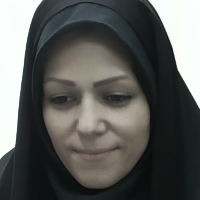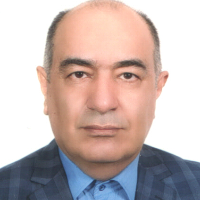Analyzing the Functional and Structural Approach-Oriented of Scientific Communication in Knowledge Production by Scientometrics Researchers in Iran
This research aims to analyze the functional and structural approaches of scientific communication in knowledge production by researchers in the field of scientometrics in Iran to show how knowledge production by researchers in a context is affected by the functional and structural approach-oriented.
This research has been done by a mixed method, However, content analysis has been used. The research sample was the scientometric experts who were working in the universities. We had five phases for complementing this research. In the first phase, we tried to identify the scientometricians and extract the required information from the universities websites. In the 2nd phase, we designed a questionnaire to answer the research questions and in the third phase we used semi-structured interviews for the qualitative part of the research. In the fourth phase, the data gathered from the previous phases, are categorized separately. To analyze the data from interviews we used content analysis techniques and finally began to analyze them with the appropriate software such as SPSS.
The finding has shown that researchers in this field tend to use specialized tools to establish their scientific communication and the most common reason for participating in this type of tools are factors such as understanding specific issues, knowing the scientific community around them, etc. Furthermore, it was determined that scientometric studies to produce knowledge used two main tools which are social networks such as Email, Linkedin, ResearchGate, Whatsapp, and Weblogs and scientific search engines like Microsofacademia, Google Scholar, and Semantic Scholar. Besides, for maintaining precedence in proposing ideas and theories, they prefer to share their knowledge in academic environments through formal channels such as bringing them up in scientific forums. According to the structural approach, most of the facilities provided to researchers by Iran’s scientific institutions were technological facilities and they wanted to increase government support. Creating virtual scientific communication centers and making scientific workgroups in different scientific fields was another finding. Researchers emphasized research development factors such as international and national university cooperation, Open Access to scientific and educational resources, management based on expertise and knowledge, and material and spiritual encouragement of researchers.
Scientometric Researchers tend to use two-way and specialized tools such as databases and believe that this type of communication has improved their communication process in response to their needs. It has also affected the quality of their products and scientific activities. The results showed that virtual communication environments have a high capacity for the production and transfer of science as well as the formation of strong scientific relationships due to their interactive capabilities. It was also found that scientometrics researchers in using such databases more than others to generate knowledge and communicate because of the two-way and specialized nature of communication channels such as Google Scholar. The results showed that the most motivation and reasons for the presence of researchers in social media are factors such as finding out the specific issues of their field, searching and obtaining scientific and educational information, sharing scientific information, obtaining general information and news, and in the second place, things such as Getting to know the scientific community around you, consulting and thinking with other researchers, promoting and developing professional activity, and chatting online are the least used by researchers. Scientometric researchers believe that both official channels (such as databases) and unofficial channels (such as conferences) are suitable for presenting their ideas and theories, but most researchers share their scientific achievements in Formal environments are considered more reliable than informal environments. However, for various reasons, including the filtering of some official channels, some researchers believe that these conditions make it difficult to share their scientific achievements. The most important factors for the strengthening and development of research in society from the perspective of researchers are factors such as: creating a virtual center for scientific and research communication, determining suitable scientific communication patterns and making it coherent, appropriate scientific policy making concerning interdisciplinary approaches, determining scientific topics that can be researched with Interdisciplinary approaches in scientific centers are the formation of appropriate scientific working groups using experts from different fields. From the point of view of researchers in the field of scientometrics, the facilities, and facilities that society should provide to this group of researchers include government support for interdisciplinary research, material support for researchers, and setting up a research and development unit.
- حق عضویت دریافتی صرف حمایت از نشریات عضو و نگهداری، تکمیل و توسعه مگیران میشود.
- پرداخت حق اشتراک و دانلود مقالات اجازه بازنشر آن در سایر رسانههای چاپی و دیجیتال را به کاربر نمیدهد.



